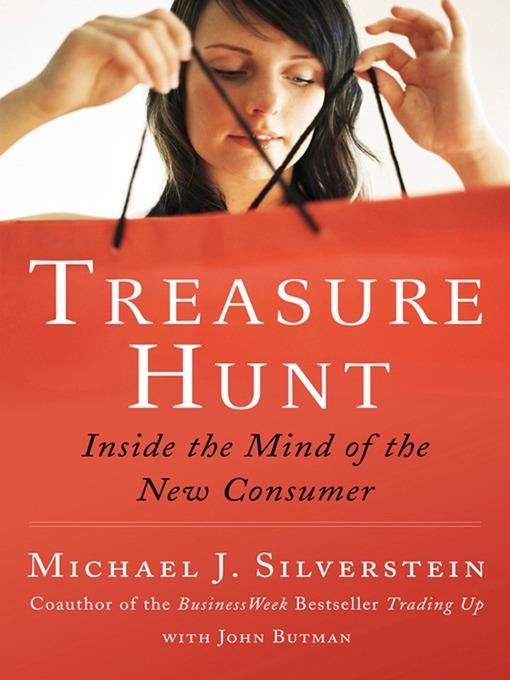
Treasure Hunt
Inside the Mind of the New Consumer
کتاب های مرتبط
- اطلاعات
- نقد و بررسی
- دیدگاه کاربران
نقد و بررسی

May 1, 2006
In their bestselling Trading Up, Silverstein and Neil Fiske explained why people are willing to spend beyond their means for certain premium goods. But that's only half the story: as middle-class customers splurge on lingerie and appliances, they're bargain-hunting for everything else. Companies will thrive, Silverstein argues, by catering to the penny-pinching impulses of consumers, or by "spanning the poles" and appealing to both the high and low ends while avoiding anything else-there's only "death in the middle." The book's profiles of individuals who splurge-and-scrimp and case studies of companies that have successfully adapted to the polarization of the marketplace show the key to survival is to offer the perception of good value for money and an emotionally satisfying experience. This is where the book becomes a tad creepy: Silverstein analyzes female consumers' relationships with their mothers and attributes an advertising executive's "lack of a father's love, a social-climbing mother and several failed relationships" as causes of her binge-spending and scrimping. Silverstein's guide to cashing in on the top and the bottom is intelligent without becoming mercenary; business owners will take notice.

Starred review from May 15, 2006
Silverstein (senior v.p., Boston Consulting Group, coauthor with Neil Fiske, "Trading Up: Why Consumers Want New Luxury Goods -and How Companies Create Them") and Butman ("Juran") have produced essential reading for those who currently work in marketing or are marketing majors in college. Engaging and loaded with statistics and interviews with consumers and CEOs, the text provides an excellent inside look into how today's consumers are embarking on -treasure hunts - for quality products at reasonable prices. While "Trading Up" noted the trend of middle-class consumers pursuing high-end goods, here the authors study consumers who will go on -treasure hunts - for low-end items as well, at such stores as Costco and Wal-Mart. They trade up or down to obtain the goods and services they want at the price they desire. As a result, many notable companies have changed their product lines and repositioned themselves in the marketplace to meet new challenges and increase their market share. The authors look at such examples as Aldi, LG, and Dollar General, to name just a few, and point out that other companies, e.g., Sears, Ford, and General Motors, who pursue neither the well-packaged bargain nor the inspiring luxury presentation, continue to lose market share owing to their -middle - position in the marketplace. This book should be part of any corporate or academic library as well as any public library business collection." - Diane Fulkerson, Univ. of West Georgia, Carrollton"
Copyright 2006 Library Journal, LLC Used with permission.

May 15, 2006
Today's consumer is on a continuous treasure hunt with the goal of finding the perfect value, every time. As a follow-up to " Trading Up" (2003), these authors explore the phenomenon of how average consumers make everyday thrifty buying decisions while mixing in lots of upscale purchases. Costco parking lots across the country are filled with BMWs as middle-market consumers search for bargains where they can, all the while indulging in emotionally rich, expensive goods. With more choices of where and how to buy goods, shopping has become a 24/7 activity as consumers cruise eBay, discount houses, dollar stores, and premium outlet malls. The companies that have always provided goods for middle America--General Motors, Kraft, United Airlines, Kroger, and other traditional stores are struggling and, in some cases, failing. Citing numerous case studies, Silverstein and his coauthor lay out in detail what companies must do today to appeal to the "treasure hunt" and examine this paradigm with not only anecdotal evidence but also a considerable amount of data that you would expect from a veteran from the Boston Consulting Group.(Reprinted with permission of Booklist, copyright 2006, American Library Association.)

























دیدگاه کاربران